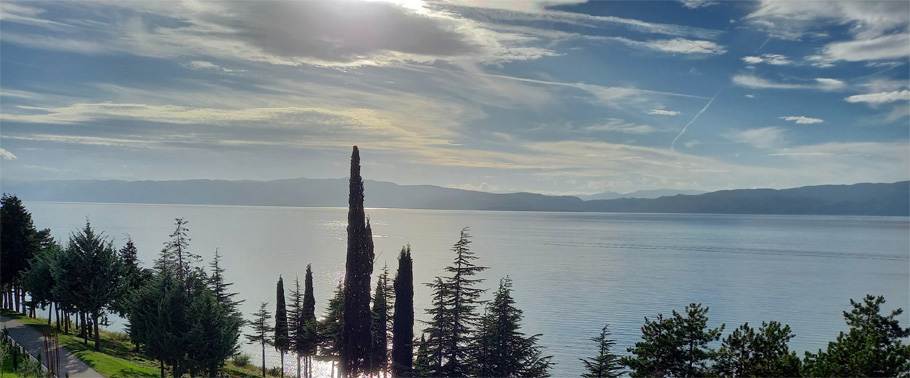I.P.O. Information Service

The Global Governance Dilemma of the United Nations
« Forum at Lake Ohrid 2024 »
Ohrid (North
Macedonia), 12
October 2024
RE/29617c-is
Since after the end of World War II, the United Nations
Charter was meant to provide a framework of rules and practices by
which international peace and security would be maintained. However,
the collective security architecture under Chapter VII of the
Charter has been dysfunctional since the very founding of the
organization. Today’s calls for a rules-based international order by
those who have condoned or exploited this state of affairs during
almost 80 years are frankly disingenuous. The voting privileges of
the UN Security Council’s permanent members (P5) have been the root
cause of the UN’s paralysis in all matters where the national
interests of the P5 or their allies are involved. The ongoing armed
conflicts in Europe, the Middle East and Africa – with the world
organization as impotent bystander – are sad testimony of this
predicament of “global governance” under UN auspices.
This was the assessment of Dr. Hans Köchler, President of
the International Progress Organization, at the 15th session of the
“School for Young Leaders,” which was held at Lake Ohrid in the
Republic of North Macedonia.
Under the motto “Leadership for Peace,“ youth and NGO leaders
together with diplomats and politicians from Europe, Asia and the
United States discussed issues of post-conflict reconciliation,
international security and sustainable development.
Concluding his speech, Dr. Köchler said that the
international rule of law requires a system of norms and regulations
that is free from contradictions – unlike the UN Charter where the
principle of sovereign equality of states
strangely
coexists with inequality in terms of voting
rights in the Security Council and where the principle
nemo judex in
causa sua
(no one shall be judge in his own case) does not apply in the most
important area of the UN, namely the maintenance of international
peace and security. In Köchler’s assessment, it borders on the
absurd that the rules of the UN Charter,
in connection with the provisions of the Statute of the
International Criminal Court,
enable a constellation where the Security Council has the power to
authorize the Court to investigate and prosecute crimes
of
aggression anywhere on the globe,
while citizens of the Council’s five permanent members are
effectively immune from prosecution
for such acts.
One should not be surprised if, under these circumstances,
inter-state relations will increasingly be shaped by a strategy of
self-help, not by a commitment to the rule of law,
Dr. Köchler said..
The debates at Lake Ohrid were hosted by Professor Gjorge Ivanov, former President of North Macedonia. On the sidelines of the meeting, the High Representative of the United Nations Alliance of Civilizations (UNAOC), Miguel Ángel Moratinos, former Foreign Minister of Spain, took part in a special session on the relevance of the Alliance for global peace.
***
![]()
* "Sovereignty and Coercion: The United
Nations in the Web of Power Politics"
![]()
Enquiries: info@i-p-o.org · Phone +43-1-5332877 · Fax +43-1-5332962 · Postal address: A-1010 Vienna, Kohlmarkt 4, Austria